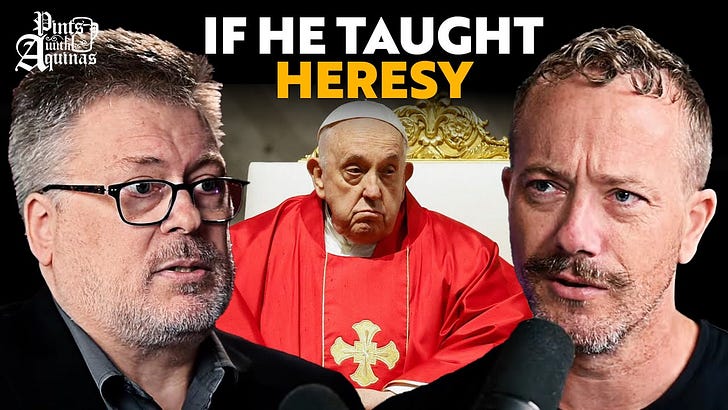I’ve said before that one of the things I find very interesting and attractive about Christianity—particularly Catholicism—is how it opens itself up to empirical falsification. For example, I’ve mentioned before that if Vatican III were called and, in her fullest authority, the Church declared that God is not a Trinity—that would do it. Catholicism would be falsified. Of course, that has never happened, nor do I think it ever would.
But here’s the thing: if Catholicism were false, I would seriously expect such falsification events to occur—and not just occasionally, but frequently and obviously. And yet, that’s not what I’ve found. There are anomalies and tricky cases, to be sure, but nothing on the scale I would anticipate if what the Church claims about herself—regarding indefectibility and infallibility—were untrue.
Rather, what I see when I look at Church history (in conjunction, of course, with the proper understanding that God works with all things according to their nature, so we should expect a considerable amount of messiness) is generally what I would expect to see if Catholicism were true.
Anyway, here’s a video of Edward Feser saying essentially the same thing. No surprise—I totally agree with his assessment on these matters. It’s worth a watch:
While you’re at it, you might also want to check out Trent Horn’s very helpful and fair-minded overview of the ontological argument. Oh, and he makes a fantastic book recommendation at the end—don’t miss it!
Why More Dogmas Don’t Mean More Errors in Catholicism
I’m not going to argue for the truth of the Catholic faith in this post (that would be quite a project), but I will address two common objections against Catholicism that seem demonstrably false—meaning, they’re definitely not problems for the Catholic faith (though they may be for Protestantism).





No shock at all that you support Fesers assessment! He does get alot right. And he has a good sense of humor! I told him I love his work outside of his magisterial critiques, being that I am a popesplainer and all, but I remain a fan nonetheless...and he gave it a like. Lol. No doubt he has a good sense of humor.